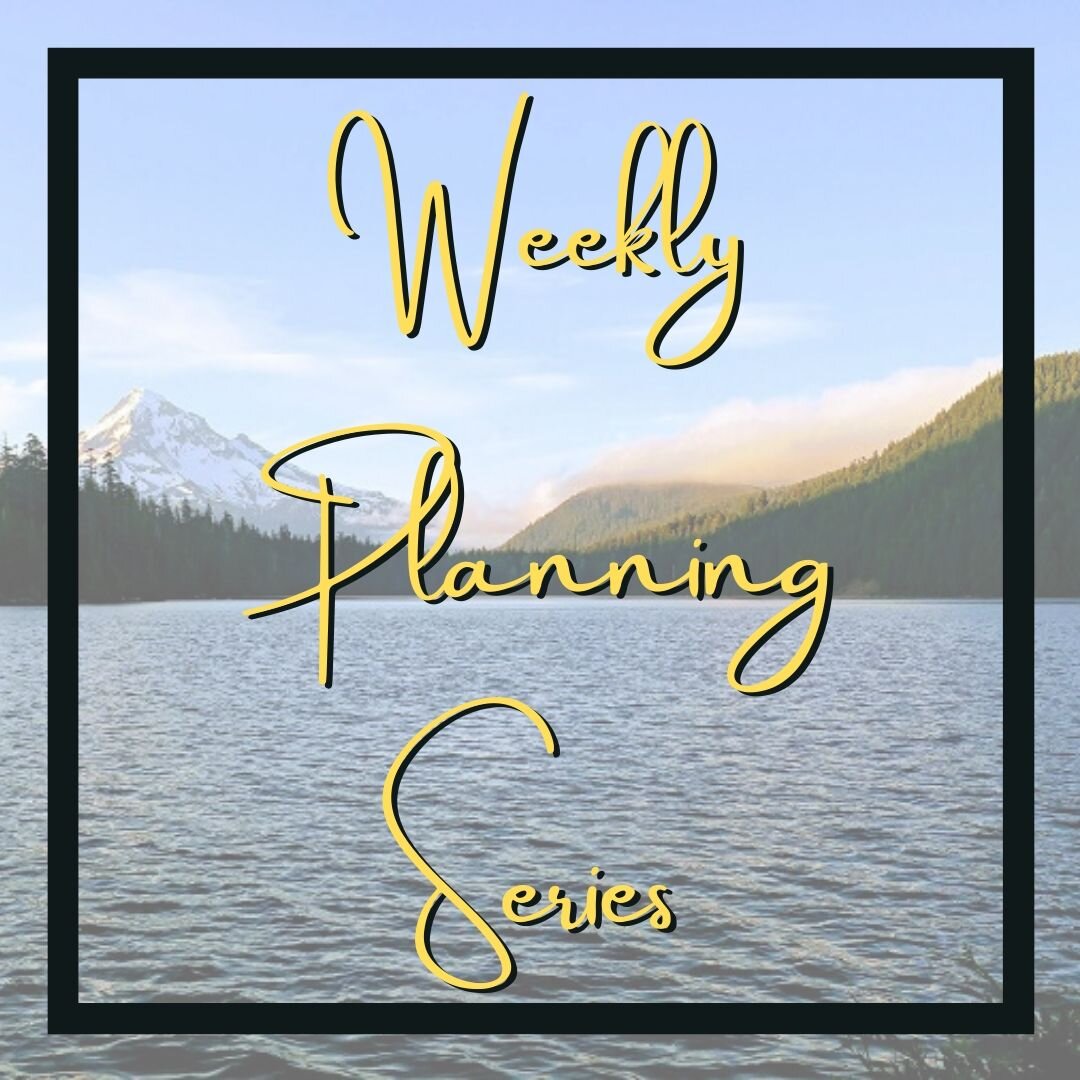Weekly Planning Myths I’ve Heard From Academics
Just a quick note before you head into the blog post. Are you an academic who is trying to figure out your long term planning processes? My planning course, plan(it)*, can help support you as you figure that out. Check out the link for more info.
In the last weekly planning series post I wrote all about why weekly planning is important for faculty and grad students. This post delves into some common misconceptions I often hear floating around in the academic community about planning for the week (or just planning in general).
There's one perfect weekly planning process that you must follow.
Unfortunately, there's no magic formula you can follow that is guaranteed to work for you. Sure, there are similarities between the various systems that people are using, but they aren’t all exactly the same. What works for me isn't necessarily going to work for you. That's why you've got to try things out and evaluate what works best for your brain. The perfect weekly planning process is one that works for you.
There's one perfect tool that you need to use.
Just like a “perfect” weekly planning process, there's not one tool that's going to solve all your problems. If you hate electronic planning tools, you’re probably not going to like the new fancy app that your colleagues are talking about. Or if your paper planner is collecting dust in a corner, buying another brand of planner probably won’t motivate you to use it. While I certainly have lots of love for the tools I’m currently using, like google calendar (here’s a peek at how I use it) and Notion, I also realize that these tools aren’t going to work for everyone. Just like with your weekly planning process, you’ve got to do some experimentation and find what works for you.
Once you find a weekly planning process that works, it will work forever.
Nothing is permanent. Your weekly planning process is no different. I have cycled through many, many, many variations of my weekly planning process. They've all looked pretty different and have been greatly influenced by what's going on in my life. My pre-kid grad school planning process was different from my process during my first year on the tenure track with an infant. If something isn't working anymore, don't force it. Take some time to explore what's not working and how you might adjust your planning routine. Try out a few new strategies and re-evaluate. Planning is a journey, not a destination.
Weekly planning is boring, tedious, anxiety provoking, a waste of time... [enter in whatever flavor of resistance you're feeling towards planning].
Sure, at times it probably feels like all of these things. However, if week after week you're feeling drained by planning or avoiding it altogether, check in with yourself, your goals, your projects, and your priorities. Are they in alignment with what you really want? Is there too much on your plate? Do you have consistent time each week on your calendar to work on things that bring you joy and satisfaction? Resistance towards planning could be signaling that it’s time to check-in with your current work.
I don't have time to plan out my week.
In my experience, whenever I find myself thinking, "I don't have enough time to plan" it usually means that planning is exactly what needs to happen! Generally speaking, planning out your week ahead of time will end up saving you time during the upcoming week. You won’t be spending mental energy figuring out what to work on and instead can use that precious brain power to actually work on the things you care about. And remember, the plan you create doesn’t have to be perfect.
Having a plan feels too rigid.
Your plans aren't meant to be rigid. They give you structure that you can use throughout the week to help you make progress on your goals; however, when things come up (and they will) that doesn't mean you can't deviate from the plan. In fact, I'd encourage you to build in that flexibility to your weekly plans automatically. For me, having open space on my calendar where I have no specific plans is also a big part of my planning process. I can easily move things around or go down a rabbit hole with an idea that spontaneously came up during the week.
I’m bad at planning.
I think when this thought comes up we’re often looking at planning through a really narrow lens. For example, maybe you’re thinking that planning means you have to have a very detailed description of exactly what will happen during each moment of the upcoming week. And sure, this can work for some people, but maybe that’s not the case for you. If you’re feeling like planning just doesn’t work for you, maybe you haven’t found your method yet!
What weekly planning myths have you come up against?
